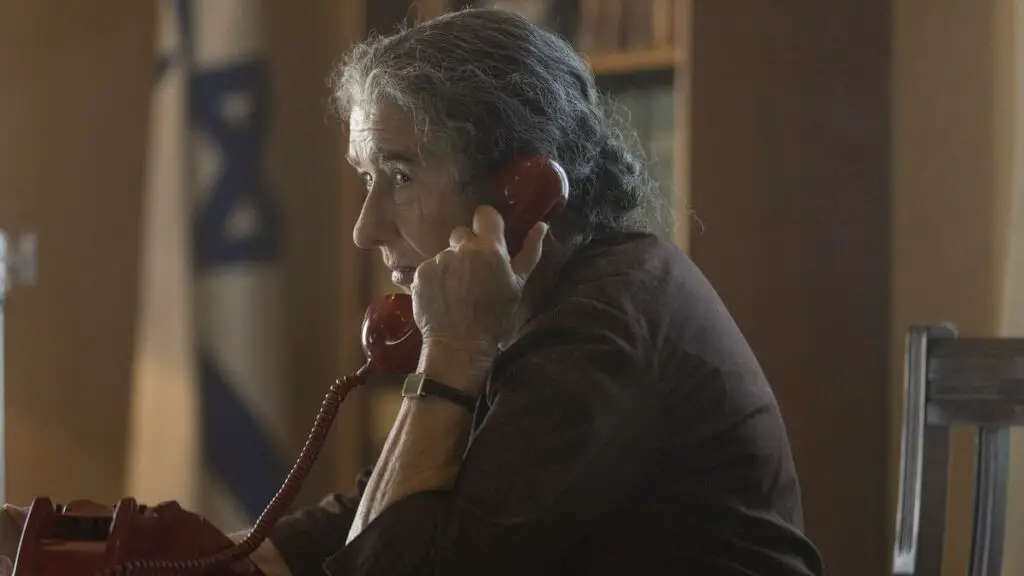In the realm of cinematic exploration, “Golda” emerges as a captivating endeavor that promises to deliver a gripping narrative, enriched by the presence of acclaimed actress Helen Mirren. The film delves into the life and times of Golda Meir, a pivotal figure in Israeli history, while chronicling the tumultuous events surrounding the Yom Kippur War. In this comprehensive review, we dissect the intricate elements that define this historical drama and evaluate its impact on the audience and cinematic landscape.
Unveiling the Enigma: Golda Meir’s Complex Legacy
Golda Meir, the fourth Prime Minister of Israel, stands as an enigmatic personality—a leader both lionized and reviled for her actions and vision. Revered for her indomitable spirit and unwavering commitment to the statehood of Israel, she earned the moniker of the “Iron Lady.” This epithet speaks to her resolute nature and steadfast determination to navigate the complexities of Israeli politics during a pivotal era.
Navigating Historical Context: Yom Kippur War and Its Reverberations
The Yom Kippur War of 1973 remains a seminal event in the annals of modern history, marked by the audacious assault on Israel by Arab countries led by Egypt and Syria. The film “Golda” serves as a lens through which we witness the events leading up to this conflict and the subsequent ramifications that extended far beyond the battlefield. The war served as a crucible, drawing attention to the intricacies of global politics and alliances during a period of heightened tension.
Cinematic Brilliance: Direction and Cast
Directed by Guy Nattiv, “Golda” benefits from a talented ensemble cast, spearheaded by the incomparable Helen Mirren. The film artfully navigates the complexities of Golda Meir’s life, from her visionary aspirations to her encounters with the Agranat Commission—an investigative body set up to probe the intelligence failure during the Yom Kippur War. Mirren’s portrayal captures the essence of Meir, delivering a performance that is as riveting as it is poignant.
A Glimpse into Pivotal Moments: The Agranat Commission and Beyond
Central to the narrative arc of “Golda” is the Agranat Commission—a conduit through which we gain insights into the events that unfolded before and after the Yom Kippur War. As Golda Meir (Helen Mirren) faces the inquiries of the commission, the audience is transported back to the days leading up to the holiest day in the Jewish calendar. A sense of urgency pervades as a cryptic message, encoded within chemical nomenclature, foreshadows an imminent attack.
Decisions Amid Turmoil: Golda’s Determination
The film masterfully captures the complexity of Golda’s decisions, particularly her resolve to mobilize troops prior to Yom Kippur—a politically perilous gambit. This calculated risk stems from her intuition that the impending attack aligns with this sacred day. In a bid to avert catastrophe, Golda orders the mobilization of 120,000 troops, setting in motion a series of events that would shape the course of history.
Diplomacy and Dilemmas: Balancing Alliances
As the war unfolds, the film delves into the intricate web of diplomacy and alliances. The decision to withhold action despite Cairo’s vulnerability underscores the delicate balancing act Israel faces on the global stage. The intricate dance of political maneuvering, driven by geopolitical considerations and the prevailing oil crisis, adds depth to the narrative tapestry.
Echoes of Victory and Loss: The Aftermath
While the Yom Kippur War culminates in a military victory for Israel, it is not without its somber undertones. The film portrays the consequences of an intelligence failure, resulting in significant loss of life. The war’s reverberations extend beyond the battlefield, shaping the geopolitical landscape and prompting introspection on the complexities of conflict and leadership.
Cinematic Immersion and Representation
“Golda” strives to immerse the audience in the chaos and intensity of the battlefront, as reflected through the lens of the situation room. The film captures the cacophony of panicked pleas, unyielding orders, and the chaos of war. However, despite these efforts, the film’s portrayal falls short of drawing the audience into the visceral experience of the battlefield.
Helen Mirren’s Enigmatic Portrayal
Helen Mirren’s portrayal of Golda Meir adds a layer of complexity to the film. Mirren’s dedication to capturing Golda’s essence is evident in her embodiment of the character, from prosthetics to chain smoking—echoes of a woman burdened by the weight of decisions. However, while Mirren’s performance is commendable, it struggles to fully immerse the audience in the intricacies of Golda’s choices during the war’s tumultuous 19 days.
In Closing: “Golda” and Its Cinematic Impact
In the realm of historical dramas, “Golda” presents a narrative that strives to capture the essence of a formidable leader amid the backdrop of conflict. The film offers insights into Golda Meir’s life and choices, punctuated by moments of brilliance and moments that fall short of cinematic immersion. While the film’s narrative trajectory is marked by ambition, it leaves room for further exploration of Golda’s enigmatic legacy.

